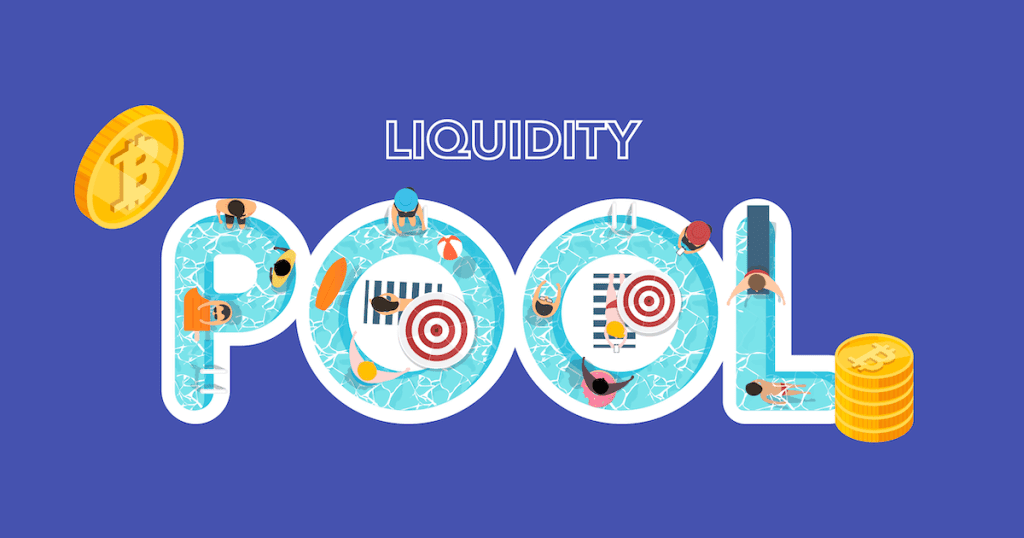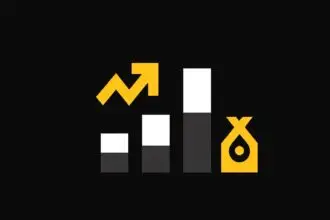
Image Credit: Daryl Loh
Introduction
While most DeFi users know about liquidity pools, LP tokens are often an afterthought. However, these crypto assets have their own use cases apart from unlocking your liquidity. In addition to the risks of using your LP tokens in other applications, there are viable strategies for extracting more value from these unique assets.
What does providing liquidity mean?
Say you want to trade with a cryptocurrency, such as Bitcoin. BTC is very liquid and can be exchanged in any amount across thousands of exchanges without worrying about its price fluctuating too much. However, not every token is as liquid as this.
When you’re working with decentralized finance (DeFi) or smaller projects, finding buyers and sellers of the coin in the required size can be difficult. One solution is to use liquidity mining, which pools together buyers and sellers to complete orders in any currency.
Liquidity pools consist of two assets that users can trade. This isn’t subject to market makers, takers, or book orders. Luckily, prices are determined by the ratio between the two tokens in the pool and all you have to do is deposit them for people to use. Someone who deposits their token, as well as another, is known as a liquidity provider, and they charge a small fee for usage.
Liquidity means that your assets are available to the markets. When it comes to DeFi, liquidity pools are specific to LP tokens. Just because there is a liquidity pool for an asset pair doesn’t make it liquid. You can’t always use the liquidity pool and need to rely on somebody else matching your order.
How do liquidity pool tokens work?
You can get LP tokens by “depositing” a pair of tokens into a liquidity pool. The tokens act as your receipt and they hold the value of your share of the pool. If you lose them, then you won’t be able to retrieve your deposit unless someone else pays for it. That means that if you’re not careful, you could lose access to your investment.
You’ll find LP tokens in the wallet you used when providing liquidity. You may need to add the LP token’s smart contract address to see it in your crypto wallet. Most LP tokens can be transferred between wallets, which means that ownership transfers with them. However, if a liquidity pool service provider doesn’t allow that, transferring LP tokens might happen without preserving usage of what has been provided from the original money source.
Where can I get liquidity pool tokens?

image Credit: https://zipmex.com/learn/what-is-liquidity-pool/
In order to earn LP tokens, you will need to provide liquidity by using a DeFi DApp, like PancakeSwap or Uniswap. LP token systems are common in many blockchains, DEXs and AMMs.
When using a liquidity pool service in a centralized finance environment on an exchange, it’s likely you won’t receive LP tokens. Instead, these tokens will be held by the custodian service provider. In these liquidity pools, your LP token will usually have the names of the two tokens you’re participating in. With PancakeSwap and CAKE and BNB, you’ll have a BEP-20 token called CAKE-BNB LP. If you do it on Ethereum, they would be ERC-20 tokens.
What can I do with liquidity pool (LP) tokens?
When you acquire LP tokens, it’s like being able to exchange your assets for literally anything. There are a lot of different services and platforms out there, so you should be able to find something that connects with your interests.
Use it as a way to trade things with people.
Tokens/coins allow for a free transfer from one person to another; you could send BNB-wBNE LP tokens to someone who could then extract either of the coins from the pool. Tokens are often specific to a certain wallet address but most allow for the free transfer of their tokens.
If you’re interested in knowing the exact number of tokens you have in your Aqueduct pool, it can be difficult to calculate these numbers manually. Luckily, there are some DeFi calculators that can help you with this task.
Use it as collateral for a loan
When you possess LP tokens, it means you own an underlying asset. It’s useful in some situations to use them as collateral. Like when you use BNB, ETH, or BTC as collateral for a crypto loan, some platforms allow you to offer your LP tokens as collateral. Typically, this will enable you to borrow for a stablecoin or other large market cap asset.
In some cases, a loan is overcollateralized. For example, if you’re unable to keep up with the collateral ratio, the lender will claim the assets that form your collateral to sell them for cash.
Compound their earn
One of the most common things you can do with your LP tokens is to deposit them in a yield compounder. That’s when a service will take your LP tokens, regularly collect rewards on them, and purchase more of that token pair. Then they’ll stake those tokens back in the liquidity pool (sometimes called a yield farm), which allows you to earn interest on your investment.
When users are able to compound investment earnings over time, it can lead to higher returns than manually reinvesting a small amount of interest. People may opt for an expensive strategy with a high rate of return and low fees but that eats up more in transaction fees every month.
What are the risks associated with LP tokens?
Though lucrative, investing in LP tokens carries risks such as:
1. Imagine losing the LP token you have. Then you never get your share of the liquidity pool or any interest.
2. One of the dangers brought about by smart contracts is that, due to their complexity, they may be vulnerable. If a trader or LP’s liquidity pool is compromised because of a failure with the smart contract, it will prevent the liquidities from being returned. When you stake your tokens with a yield farm or loan provider and their contracts fail, it can lead to the same result.
3. It’s hard to know what they represent: When looking at your LP Tokens, it can be difficult to tell exactly what they’re worth. If token prices have diverged, you will have also incurred an impermanent loss. You also have an interest to factor in as well. These uncertainties make it challenging to make an informed decision about when you should exit your liquidity position.
4. Opportunity cost: It may be better to invest your tokens elsewhere or use them in a different opportunity.
Conclusion
One of the benefits of using DeFi protocols is that you can set up a liquidity pool and then deposit tokens into it. This is just the first step in a larger DeFi strategy. To find out if this type of investment is right for you, consider the total size of your investment portfolio, calculate your risk tolerance, and ask yourself: Am I going to hold my token or use it?










